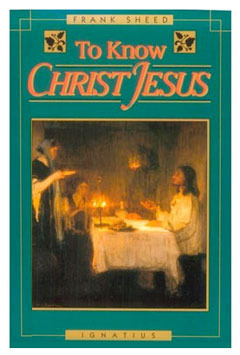"It is clear, then, that John the Baptist's mission was essential: ..."
... Jesus' own mission needed it. In his Gospel, St. John interrupts his breathtaking Prologue about the Incarnation of the Word (which we Catholics read as the Last Gospel at Mass) to say: "There was a man sent from God, whose name was John. This man came for a witness, to give testimony of the light, that all men might believe through him." So that the Light of the World, the Light which of all lights could surely not be hid, needed someone to give testimony to him, needed John to give testimony to him!
Little is said in the New Testament to show why John's work was thus essential. Our Lord praises him indeed: "Amongst
 those that are born of women there is not a greater prophet than John the Baptist" (Luke vii.28): and he was not lavish of praise; pause a moment and try to think of anyone else he praised. But although Jesus says (you will find it in the verse before) that John was to prepare his way, it is hard to find any hint from him as to why any preparation at all was necessary for a mission as powerful in word and as studded with miracles as his. We are not shown in the Gospels mighty things flowing from John's work into Christ's. And in the rest of the New Testament nothing much is made of St. John's mission either. St. Paul never refers to it at all, though he must have known about it, since the only description we have of John's origin is given by Paul's companion and disciple, Luke.
those that are born of women there is not a greater prophet than John the Baptist" (Luke vii.28): and he was not lavish of praise; pause a moment and try to think of anyone else he praised. But although Jesus says (you will find it in the verse before) that John was to prepare his way, it is hard to find any hint from him as to why any preparation at all was necessary for a mission as powerful in word and as studded with miracles as his. We are not shown in the Gospels mighty things flowing from John's work into Christ's. And in the rest of the New Testament nothing much is made of St. John's mission either. St. Paul never refers to it at all, though he must have known about it, since the only description we have of John's origin is given by Paul's companion and disciple, Luke.
Thanks to Luke, all the same, the Church has been intensely aware of John ever since. He is one of that small and immeasurably select band to whom we say the Confiteor at every Mass and daily in our own prayers. Great saints have been named after him—St. John Baptist de la Salle, for instance, who founded the Brothers of the Christian Schools in the seventeenth century; St. John Baptist de Rossi, the eighteenth-century saint whose own instincts were rather like those of his namesake; in the nineteenth century the Cure of Ars, Jean-Marie-Baptiste Vianaey, who would have loved a desert but was never allowed by God to go to one. The number of not spectacularly saintiy persons. who bear his name is, of course, beyond counting—the great French writer of comedy, Moliere, for instance, was Jean-Baptiste Poquelin.
But all that this means is that the parents of the saints, to say nothing of the parents of the dramatist and of the unnumbered others, had a great devotion to the son of Zachary and Elizabeth, not that they had any clear understanding of why it was essential that Our Lord should have him for a Forerunner, or why be should have anybody for a Forerunner. What herald could he possibly need? Their devotion was almost certainly not to the prophet without whom Christ's mission would have lacked an essential element: it was to the child whose birth had been foretold by Gabriel, the child who had leapt in his mother's womb at the sound of Mary's voice as she entered the house of his parents with the Second Person of the Blessed Trinity in her womb: it was to the man who had paid with his head for telling the truth about Salome's mother.
From Frank Sheed's To Know Christ Jesus. Read the longer excerpt on Ignatius Insight:
Carl E. Olson's Blog
- Carl E. Olson's profile
- 20 followers




